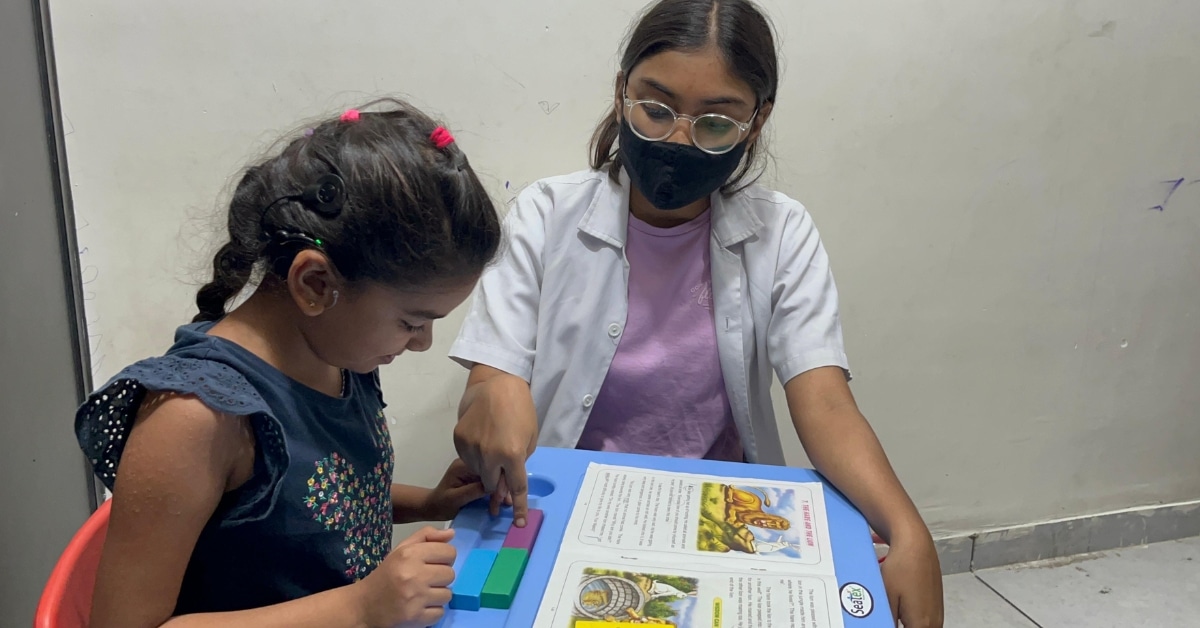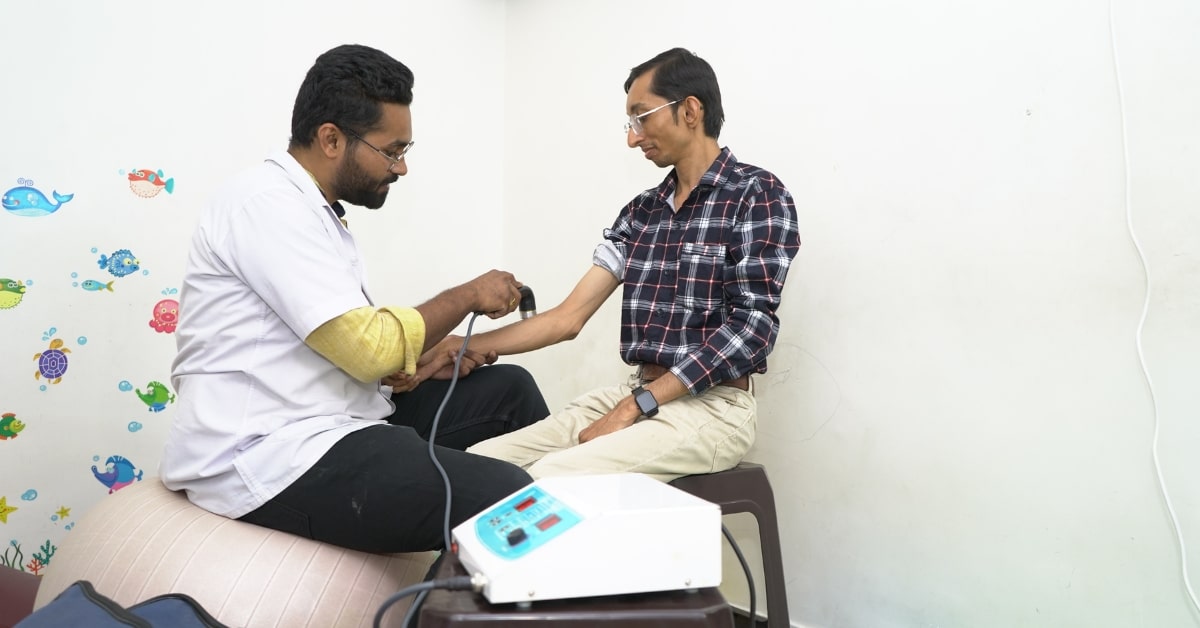
Swallowing Therapy Centre in Vadodara
RDCC Healthcare is the Best Swallowing Therapy Centre in Vadodara and offers expert Dysphagia Therapy. Our Swallowing Therapy Specialists enhance swallowing function for a better quality of life and are dedicated to helping individuals improve Swallowing Function and Safety, increase Oral Intake, and enhance Overall Quality of Life.
What is
Swallowing Therapy
Swallowing Therapy, also known as Dysphagia Therapy, is a specialized rehabilitation program aimed at Addressing Difficulties with Swallowing (Dysphagia). The Primary Goals of Swallowing Therapy are to improve Swallowing Function and Safety, increase Oral Intake, and Enhance the Overall Quality of Life for individuals experiencing Dysphagia. This Therapy typically begins with a comprehensive assessment conducted by a Speech-Language Pathologist (SLP) who specializes in Dysphagia. The assessment includes a Review of the Individual’s Medical History, Observation of Swallowing Function during Meals, and examination of Oral Motor Function and Sensation. In some cases, Instrumental Evaluations such as Videofluoroscopic Swallowing Study (VFSS) or Fiberoptic Endoscopic Evaluation of Swallowing (FEES) may be conducted to visualize swallowing function more directly.
Goals of
Swallowing Therapy
The Goals of Swallowing Therapy, also known as Dysphagia Therapy, encompass various aspects aimed at Improving Swallowing Function and Safety, Enhancing Oral Intake, and Ultimately Enhancing the Overall Quality of Life for Individuals experiencing Dysphagia. Here are the Key Goals of Swallowing Therapy:
Treatments for
Swallowing Therapy
Treatment for Swallowing Therapy, also known as Dysphagia Therapy, typically involves a combination of interventions aimed at addressing underlying Swallowing Difficulties and Promoting Safe and Efficient Swallowing. Here are some Common Treatments used in Swallowing Therapy:
Oral Motor Exercises
These exercises focus on Strengthening the Muscles involved in Chewing and Swallowing, improving Oral Control and Coordination. Examples include Tongue Exercises, Lip Exercises, and Cheek Exercises.
Swallowing Maneuvers
Certain Techniques, known as Swallowing Maneuvers, can help to improve Swallowing Function and Reduce the Risk of Aspiration. Examples include the Chin Tuck Maneuver, Head Turn Maneuver, and Supraglottic Swallow.
Diet Modifications
Adjusting the Texture or Consistency of Foods and Liquids can make Swallowing easier and safer for individuals with Dysphagia. This may involve Transitioning to Softer or more easily Swallowed Foods, Thickening Liquids to reduce the Risk of Aspiration, or using Specialized Swallowing Techniques.
Sensory Stimulation
Sensory Techniques, such as Thermal Tactile Stimulation or Gustatory Stimulation, can help increase Oral Awareness and improve Swallow Initiation and Coordination.
Compensatory Strategies
These are designed to help individuals compensate for Swallowing Difficulties and Minimize the Risk of Aspiration during Meals. Examples Include Posture Adjustments, Pacing Techniques, and Modifying the Size of Food Boluses.
Behavioral Therapy
Cognitive Behavioral Techniques may be used to address Psychological Factors that can impact Swallowing Function, such as Anxiety or Fear of Choking. Relaxation Techniques and Stress Management Strategies may be Incorporated into Treatment to Promote a More Relaxed and Comfortable Swallowing Experience.
Follow-Up and Monitoring
Regular follow-up appointments and monitoring are crucial to assess progress, adjust treatment plans as needed, and address any new or emerging swallowing issues.
If you or a loved one are experiencing difficulties with swallowing, our team of Swallowing Therapy Specialists in Vadodara is here to help. Contact us today to learn more about how we can assist you in improving Swallowing Function and enhancing your quality of life through swallowing therapy.





